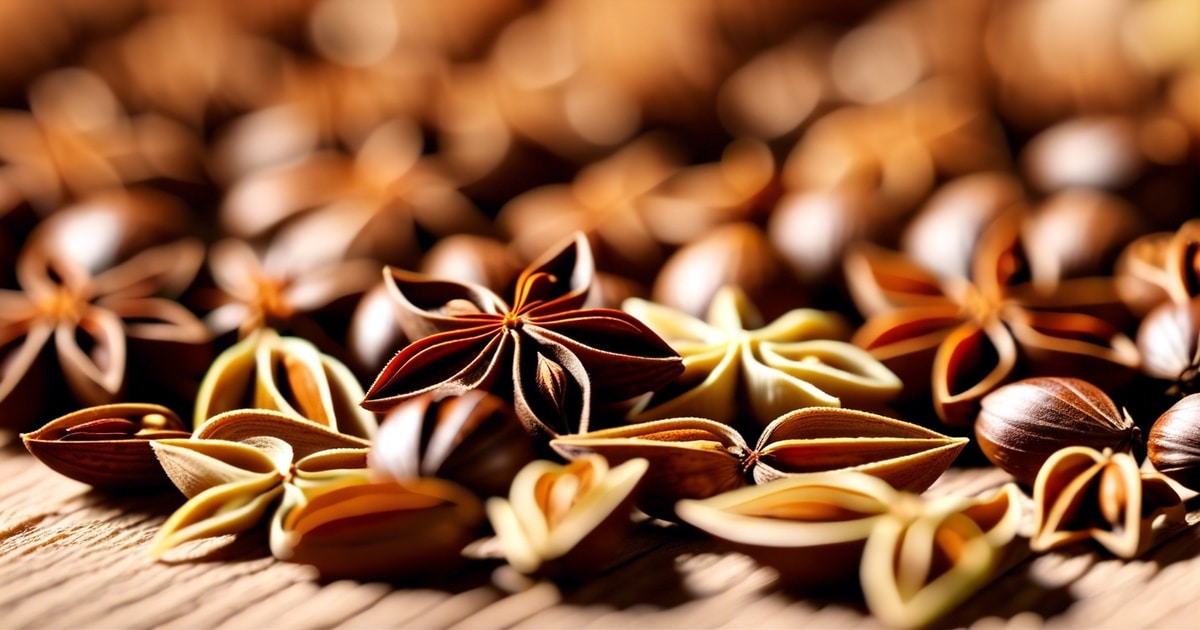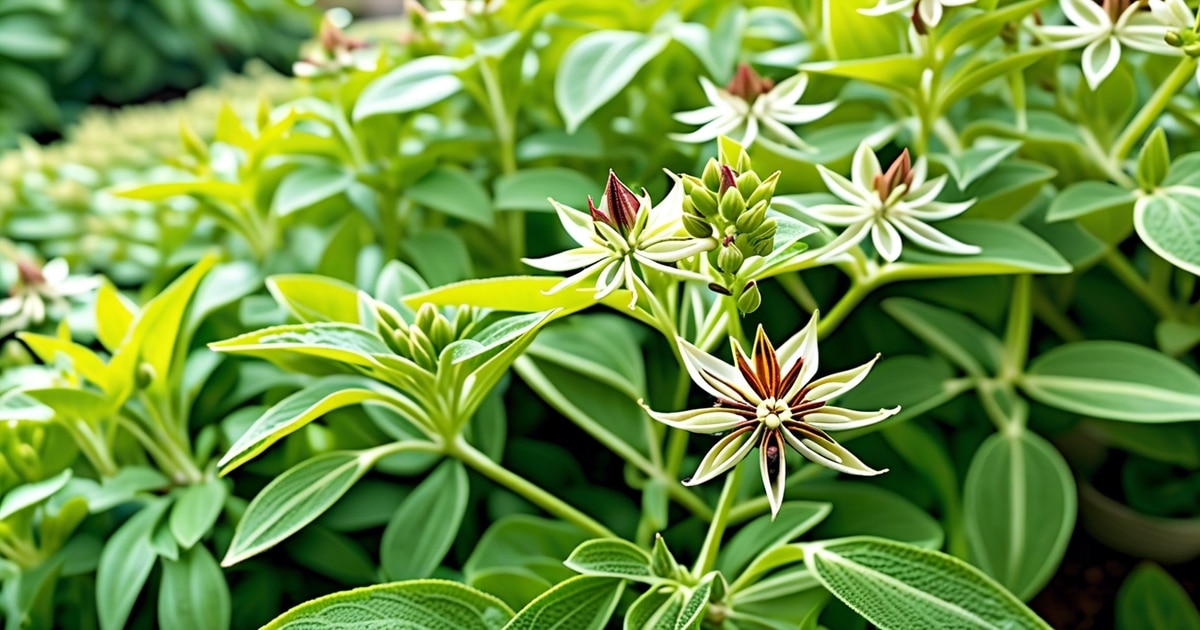Key Takeaways
- Incorporate anise seeds, spices, and herbs into your diet: Add anise seeds to your dishes or beverages to enjoy their unique flavor and potential health benefits.
- Be mindful of the recommended dosage when using anise seeds, a plant extract, to avoid adverse effects.
- Differentiate between anise and star anise to understand the differences in spices and plant extracts.
- Explore anise, a medicinal plant, for specific health conditions: After consulting with a healthcare professional, consider using anise, a spice, as a natural remedy for digestive issues, coughs, or other health concerns.
- Stay informed about the cultivation and production of anise, a medicinal plant: Understanding how anise is grown and harvested can provide insights into its quality and sustainability.
- Exercise caution with potential side effects: Be aware of possible side effects and interactions of anise, especially if you have allergies or medical conditions that may interact with this herb.
- Let’s find out, what is anise?
Understanding Anise: Origins and Botany
Plant Origin
Anise, scientifically known as Pimpinella anisum, hails from the eastern Mediterranean region. It thrives in warm climates with well-drained soil. Anise’s history dates back centuries and is valued for its culinary and medicinal properties and essential oils. The plant’s delicate white flowers give way to small seeds with a distinct licorice-like flavor.Botanical Family
Anise belongs to the Apiaceae family, which encompasses various aromatic plants used in cuisines worldwide. It shares botanical roots with familiar vegetables like carrots, celery, and parsley. Anise seeds are commonly used whole or ground in cooking and baking. They add a unique sweetness and depth of flavor to dishes ranging from sweets like cookies and cakes to savory dishes such as stews and soups.Health Benefits of Anise Seed

Rich in Antioxidants
Anise seeds are packed with antioxidants that combat harmful free radicals in the body. These antioxidants help protect cells from damage and reduce the risk of chronic diseases. Incorporating anise seeds into your diet can boost your overall health and well-being. Eating anise seeds may aid in maintaining a healthy digestive system by alleviating issues like bloating and gas. The essential oils and natural compounds found in anise seeds have been shown to soothe the digestive tract, promoting smoother digestion processes. This can reduce discomfort after meals and improve gut health over time.Supports Oral Health
The essential oils present in anise seeds possess antimicrobial properties that benefit oral health. These properties can help fight off harmful bacteria in the mouth, reducing the risk of dental issues such as cavities and gum disease. Incorporating anise seeds and essential oils into your oral care routine may contribute to fresher breath and healthier gums.- Pros:
- Rich source of antioxidants
- Promotes healthy digestion
- Supports oral health
Cultivation and Production Insights

Ideal Growing Conditions
Anise plants thrive in well-drained soil and full sun, which are crucial for their optimal growth. Providing adequate sunlight and ensuring that the soil allows water to drain effectively are also essential. Anise seeds are ready for harvesting when they transition to a distinctive grayish-brown color. This change signals that the seeds have matured, making them suitable for harvest. Harvesting at this stage ensures the best quality of seeds, ideal for various purposes such as culinary use or medicinal applications.Global Cultivation Regions
Countries like Turkey, Spain, Egypt, and China are known for extensively cultivating anise plants. The warm climate in these regions provides an ideal environment for anise production. Each of these countries contributes significantly to the global supply of anise seeds used in various industries worldwide.- Anise requires well-drained soil and full sun.
- Seeds harvested when turning grayish-brown.
- Major cultivation regions include Turkey, Spain, Egypt, and China.
Anise in Culinary Uses and Traditional Medicine
Flavoring Agent in Cuisines
Anise seeds are popular spices used to add flavor to various dishes, such as desserts and alcoholic beverages. Their distinct licorice-like taste enhances the overall culinary experience. For instance, anise is commonly found in recipes for cookies, cakes, bread, and even savory dishes like stews. Anise can also be utilized as a natural remedy due to its digestive properties. It has been traditionally used to assist with digestion issues such as bloating or gas discomfort. Its aromatic nature makes it a favorite choice for flavoring teas or herbal infusions aimed at soothing stomach problems.Medicinal Benefits
Anise has been valued in traditional medicine for its potential health benefits beyond aiding digestion. The plant extracts from anise have been employed to alleviate symptoms of coughs and colds due to their soothing properties on the respiratory system. Moreover, these natural remedies offer relief from congestion and throat irritation.- Pros:
- Versatile spice enhancing both sweet and savory dishes.
- Natural remedy aiding digestion issues.
- Soothing effects on respiratory ailments like coughs and colds.
Anise for Specific Health Conditions
Menstrual Cramp Relief
Anise tea, with its antispasmodic properties, is known to help alleviate menstrual cramps. The soothing effects of anise can provide comfort during uncomfortable periods. Drinking a warm cup of anise tea may offer natural relief from the pain and discomfort associated with menstruation. An example of using anise for menstrual cramp relief is brewing a cup of anise tea by steeping crushed anise seeds in hot water for a few minutes before straining and drinking it slowly to experience its calming effects.Potential Anti-Cancer Effects
Studies have indicated that anethole, a compound in anise seeds, could possess anti-cancer properties. This suggests incorporating anise into your diet might offer potential health benefits beyond its culinary uses. Anethole’s ability to combat cancer cells showcases the diverse advantages of this aromatic spice. You could benefit from these potential anti-cancer effects by adding ground anise seeds to your daily meals or consuming them as part of herbal remedies under professional guidance.Exploring the Side Effects of Anise
Allergic Reactions
Although rare, some individuals may experience allergic reactions to anise. Symptoms can include itching, swelling, or difficulty breathing. If you suspect an allergic reaction, it’s essential to consult a healthcare provider. An animal study suggested that anise could trigger food allergies, so caution is advised when using it for culinary purposes or medicinal reasons.Skin Irritation and Digestive Issues
Dilution is crucial when using anise oil, as applying it directly on the skin can cause irritation. Always perform a patch test before widespread use to avoid any adverse effects. Consuming excessive amounts of anise seeds may lead to digestive problems such as nausea and vomiting. Moderation is key when incorporating anise into your diet for flavor and potential health benefits.Precautions and Recommended Dosage
Pregnancy Concerns
Anise can impact hormone levels, so pregnant women should limit its consumption. It’s essential to be cautious about the amount of anise ingested during pregnancy. Consulting a healthcare professional is crucial for guidance on safe usage.- Pregnant women should avoid consuming large amounts of anise due to its potential effects on hormone levels.
- Anise could have adverse effects when consumed in excess during pregnancy.
Healthcare Guidance
Consulting a healthcare provider is recommended before starting any anise supplements. Proper dosage and usage instructions are vital to ensure safety and effectiveness. Anise shouldn’t replace medical treatments without professional advice.- Consult a healthcare professional for appropriate dosage, usage, and view of anise supplements.
- Anise should not be used as a substitute for medical treatment without proper guidance from a healthcare provider.
Anise vs. Star Anise: Differences and Uses
Botanical Differences
Anise and star anise come from different plants, with anise originating from the Pimpinella anisum plant, and star anise coming from the Illicium verum tree. Both offer a licorice-like taste but vary in intensity; anise has a milder flavor than a star anise’s more robust taste. An example of their differences can be seen in Western versus Asian cuisines. You’ll often find anise in Western dishes, contributing its subtle flavor to baked goods like cookies or bread. On the other hand, Asian recipes frequently use star anise, enhancing savory dishes such as braised meats or soups with its stronger taste.Culinary Uses
- Anethole compound gives both plants their distinctive flavor.
- Anethole content: higher in star anise than in regular anise.
- Common uses: Anethole makes them popular ingredients in liqueurs and spirits worldwide.
Summary
You’ve dived deep into the world of anise, discovering its origins, health benefits, culinary uses, and potential side effects. From its cultivation to how it can aid in specific health conditions, you now have a well-rounded understanding of this versatile herb. Remember, moderation is key when incorporating anise into your diet or health regimen. Always consult with a healthcare professional before making significant changes. Now that you know about anise and its properties, why not add a sprinkle of this aromatic seed to your next culinary creation? Embrace the goodness anise has to offer and explore the myriad ways it can enhance both your dishes and well-being.Frequently Asked Questions
What is the origin of anise?
Anise originates from the Mediterranean region and has been cultivated for centuries due to its aromatic seeds in various culinary dishes and traditional medicine practices.How can anise benefit my health?
Anise seeds offer health benefits such as aiding digestion, reducing bloating, improving respiratory health, and providing antioxidant properties that support overall well-being.How Can Anise Help with Respiratory Health?
Anise contains expectorant properties that can help relieve congestion and clear the respiratory system. Using anise for better breathing can also soothe sore throats and reduce coughing. It has been used in traditional medicine to promote respiratory health and may provide natural relief for respiratory issues.

